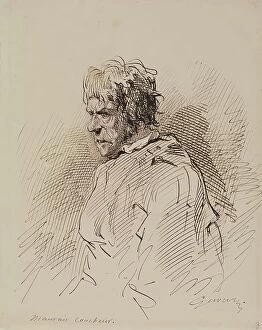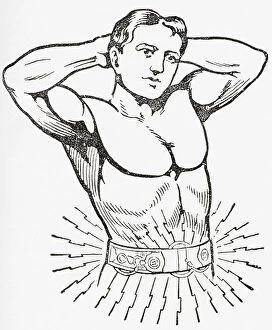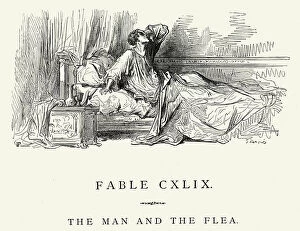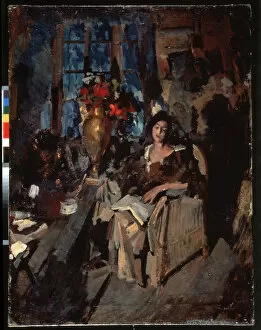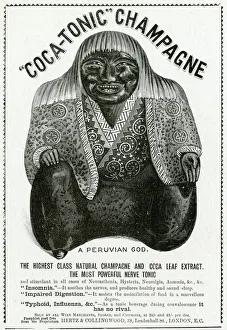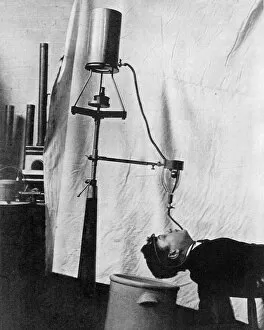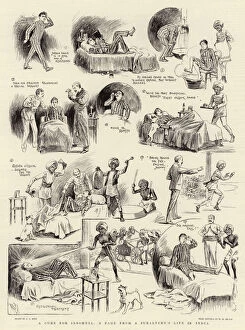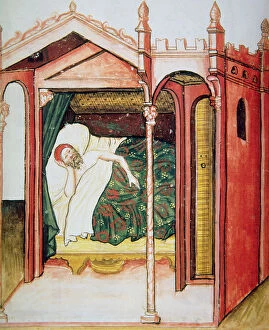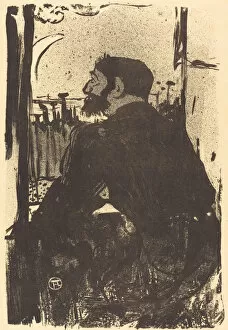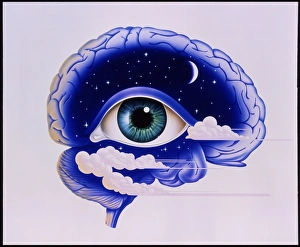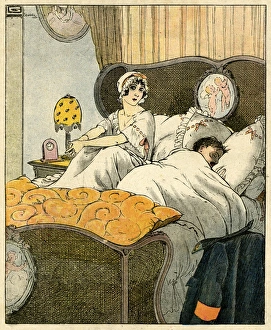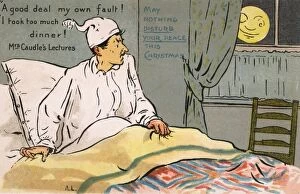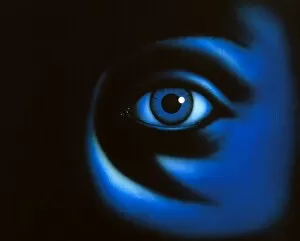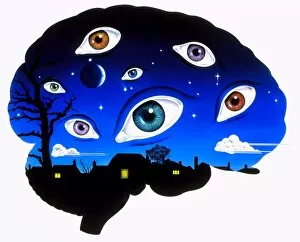Insomnia Collection
"Insomnia: The Art of Sleepless Nights" Burning the candle at both ends, a study of exhaustion and restlessness captured in C014/1258
All Professionally Made to Order for Quick Shipping
"Insomnia: The Art of Sleepless Nights" Burning the candle at both ends, a study of exhaustion and restlessness captured in C014/1258. Maxwell Gordon Lightfoot's "Study of a Girl" from c1910 portrays the weariness that comes with insomnia, as sleep eludes her delicate features. In Vasili Nikitich Meshkov's masterpiece "Pensees du soir (Evening Thoughts)", painted in 1914, we witness the torment of nighttime musings. A melancholic woman sits surrounded by everyday objects, her eyes half-closed, lost in contemplation while an open book rests on her lap. Marguerite Steinheil's imprisonment is depicted on the front cover illustration of Le Petit Journal from December 13th, 1908. In this color lithograph, she embodies the anguish and despair that often accompany sleepless nights behind bars. La Fontaine's Fables remind us of the tale where man battles against a tiny flea. Just like this relentless insect disturbs our peace, insomnia relentlessly plagues our minds and bodies. A portrait titled "Portrait de femme (Female Portrait)" captures a beautiful yet melancholic woman sitting in an armchair with closed eyes. Holding an open letter close to her heart under dim lamplight reveals her sadness and longing for solace amidst sleepless nights. Edward Young's Night Thoughts take us into introspection through his poetic words engraved on its title page. These thoughts echo within insomniacs' minds as they navigate through endless hours without slumber. Counting sheep has long been suggested as a remedy for those struggling to fall asleep peacefully. However, William Sidney Mount's painting "Counting the Flock" reminds us that even when counting seems futile; it represents hope for respite from restless nights. "There was an Old Man from the West who never could get any rest, " wrote Edward Lear in his Book of Nonsense.





